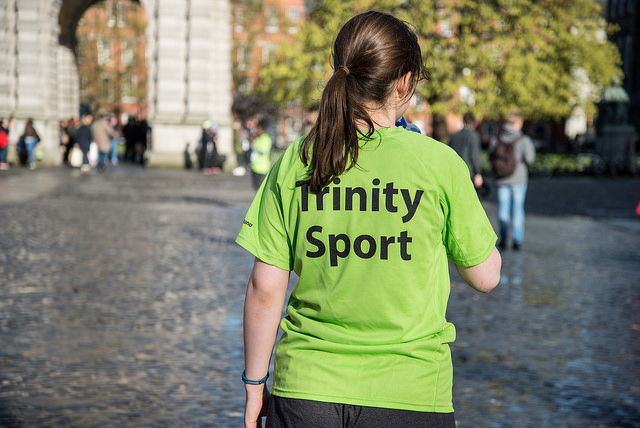
The new commercial strategy seeks to capitalise on the Book of Kells as a major tourist attraction. Photo: TCD Communications
Hannah Ryan | Senior staff writer
Recommendations were put forward for reforming Trinity’s commercial strategy at a meeting of the University Board last December, and included recommendations for the potential development of the sports grounds in Santry and expanded commercial use of of the Book of Kells.
The suggestions followed a report, presented by Gerard Lacey, College Bursar and Chair of the working group on commercialisation in College, which outlined opportunities for future revenue generation in Trinity and discoveries made by the group. The group found that there is currently no central point of contact for the various sources of commercial revenue, and in many cases these are not being utilised to their full potential. These sources include the Library, the Book of Kells, sport, concession contracts, catering and accommodation.
Commenting on the plans, Lacey said that ‘Our objective is to increase the revenue from ancillary services that college uses to fund educational activities such as lecturing posts and scholarships. It is very early days in this effort but personally I am hoping that we will also create more part time job opportunities for students.’
A SWOT (Strengths, Weaknesses, Opportunities, and Threats) analysis undertaken by the working group identified the TCD brand, the associated prestige and exclusivity as the college’s primary strengths from which it can benefit commercially. Its weaknesses were cited as the lack of clarity over who is responsible for the various commercial elements in college, and delays in the decision-making processes.
Weak points in the current commercial strategy included the Library shop which, while averaging half a million visitors per year, sees only 31% actually make a purchase, as the shop is ‘too small to properly capitalise on the opportunity.’ Furthermore, during the summer months, the large amount of accommodation offered by the college reaches an occupancy rate of only 64%, less than many of the largest hotels in Dublin city centre.
It was decided at the meeting that a Commercial Director would be appointed, whose responsibilities would include bringing focus to these various commercial elements in the College, and exploring further profit-making opportunities. It is intended that the position will be filled over the next few months.
Other areas of prospective development were also discussed, such as the establishment of a Welcome Centre for visitors and potential students, and it was agreed that the college should explore the demand for meeting space which will be required during Ireland’s presidency of the EU next year. While Lacey said that the opportunities associated with the sports grounds in Santry are limited, they will be investigated further. Crucially, he stressed that all commercial promotion should include a web-based element with the focus on promotion through social media, and all plans will aim at improving the services for students.
The current use of the Douglas Hyde Gallery and Lincoln’s Inn on Nassau St will be reviewed, as will the internal catering services and opportunities for Regent House. It is also intended to create corporate opportunities for alumni to host and entertain guests on campus, including VIP tours of the college grounds.
Facing the very low number of repeat visitors to the college, Board members highlighted the importance of maintaining high levels of service to ‘avoid brand damage’, especially where visiting potential students and parents are concerned. They also agreed that the positioning of the college brand should be prioritised especially in light of the recent launch of the Book of Kells iPad app.






